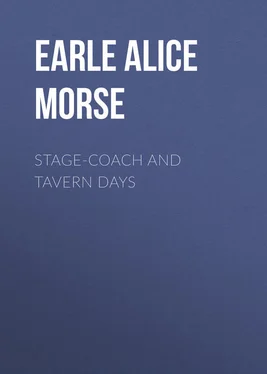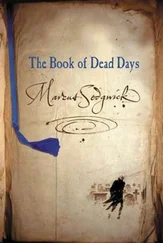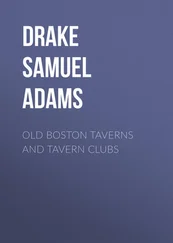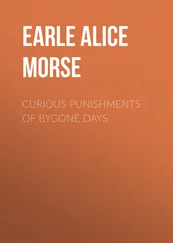Alice Earle - Stage-coach and Tavern Days
Здесь есть возможность читать онлайн «Alice Earle - Stage-coach and Tavern Days» — ознакомительный отрывок электронной книги совершенно бесплатно, а после прочтения отрывка купить полную версию. В некоторых случаях можно слушать аудио, скачать через торрент в формате fb2 и присутствует краткое содержание. Жанр: foreign_antique, foreign_prose, на английском языке. Описание произведения, (предисловие) а так же отзывы посетителей доступны на портале библиотеки ЛибКат.
- Название:Stage-coach and Tavern Days
- Автор:
- Жанр:
- Год:неизвестен
- ISBN:нет данных
- Рейтинг книги:4 / 5. Голосов: 1
-
Избранное:Добавить в избранное
- Отзывы:
-
Ваша оценка:
- 80
- 1
- 2
- 3
- 4
- 5
Stage-coach and Tavern Days: краткое содержание, описание и аннотация
Предлагаем к чтению аннотацию, описание, краткое содержание или предисловие (зависит от того, что написал сам автор книги «Stage-coach and Tavern Days»). Если вы не нашли необходимую информацию о книге — напишите в комментариях, мы постараемся отыскать её.
Stage-coach and Tavern Days — читать онлайн ознакомительный отрывок
Ниже представлен текст книги, разбитый по страницам. Система сохранения места последней прочитанной страницы, позволяет с удобством читать онлайн бесплатно книгу «Stage-coach and Tavern Days», без необходимости каждый раз заново искать на чём Вы остановились. Поставьте закладку, и сможете в любой момент перейти на страницу, на которой закончили чтение.
Интервал:
Закладка:
Lieutenant Francis Hall, travelling through America in 1817, wrote: —
“The innkeepers of America are in most villages what we call vulgarly, topping men – field officers of militia, with good farms attached to their taverns, so that they are apt to think what, perhaps, in a newly settled country is not very wide of the truth, that travellers rather receive than confer a favour by being accommodated at their houses. The daughters of the host officiate at tea and breakfast and generally wait at dinner.”
An English traveller who visited this country shortly after the Revolution speaks in no uncertain terms of “the uncomplying temper of the landlords of the country inns in America.” Another adds this testimony: —
“They will not bear the treatment we too often give ours at home. They feel themselves in some degree independent of travellers, as all of them have other occupations to follow; nor will they put themselves into a bustle on your account; but with good language, they are very civil, and will accommodate you as well as they can.”
Brissot comprehended the reason for this appearance of independence; he wrote in 1788: —
“You will not go into one without meeting neatness, decency, and dignity. The table is served by a maiden well-dressed and pretty; by a pleasant mother whose age has not effaced the agreeableness of her features; and by men who have that air of respectability which is inspired by the idea of equality , and are not ignoble and base like the greater part of our own tavern-keepers.”
Captain Basil Hall, a much-quoted English traveller who came to America in 1827, designated a Salem landlord as the person who most pleased him in his extended visit. Sad to say he gives neither the name of the tavern nor the host who was “so devoid of prejudice, so willing to take all matters on their favourable side, so well informed about everything in his own and other countries, so ready to impart his knowledge to others; had such mirthfulness of fancy, such genuine heartiness of good-humour,” etc.
In 1828 a series of very instructive and entertaining letters on the United States was published under the title, Notions of the Americans . They are accredited to James Fenimore Cooper, and were addressed to various foreigners of distinction. The travels took place in 1824, at the same time as the visit of Lafayette, and frequently in his company. Naturally inns, hotels, and modes of travel receive much attention. He speaks thus lucidly and pleasantly of the landlords: —
“The innkeeper of Old England and the innkeeper of New England form the very extremes of their class. The former is obsequious to the rich; the other unmoved and often apparently cold. The first seems to calculate at a glance the amount of profit you are likely to leave behind you, while his opposite appears to calculate only in what manner he can most contribute to your comfort without materially impairing his own… He is often a magistrate, the chief of a battalion of militia or even a member of a state legislature. He is almost always a man of character, for it is difficult for any other to obtain a license to exercise the calling.”
John Adams thus described the host and hostess of the Ipswich Inn: —
“Landlord and landlady are some of the grandest people alive, landlady is the great-granddaughter of Governor Endicott and has all the notions of high family that you find in the Winslows, Hutchinsons, Quincys, Saltonstalls, Chandlers, Otises, Learneds, and as you might find with more propriety in the Winthrops. As to landlord, he is as happy and as big, as proud, as conceited, as any nobleman in England, always calm and good-natured and lazy, but the contemplation of his farm and his sons, his house and pasture and cows, his sound judgment as he thinks, and his great holiness as well as that of his wife, keep him as erect in his thoughts as a noble or a prince.”
The curiosity and inquisitiveness of many landlords was a standing jest.
“I have heard Dr. Franklin relate with great pleasantry,” said one of his friends, “that in travelling when he was young, the first step he took for his tranquillity and to obtain immediate attention at the inns, was to anticipate inquiry by saying, ‘My name is Benjamin Franklin. I was born in Boston. I am a printer by profession, am travelling to Philadelphia, shall have to return at such a time, and have no news. Now, what can you give me for dinner?’”
The landlord was usually a politician, sometimes a rank demagogue. He often held public office, was selectman, road commissioner, tax assessor, tax collector, constable, or town moderator; occasionally he performed all these duties. John Adams wrote bitterly that at public houses men sat drinking heavily while “plotting with the landlord to get him at the next town-meeting an election either for selectman or representative.”
They were most frequently soldiers, either officers in the militia or brave fighters who had served in the army. It was a favorite calling for Revolutionary soldiers who lived till times of peace. They were usually cheerful men; a gloomy landlord made customers disappear like flowers before a frost. And these cheery hosts were fond of practical jokes.
One of the old hotels with the long piazza across the entire front was owned by a jesting landlord who never failed to spring an April-fool joke on his forgetful customers each year. The tavern had two doors, and every winter these were protected by portable storm porches the width of the door and about four feet deep. On the first day of April the landlord moved the porches a few feet down the piazza, so they opened upon the blank wall of the house. The house and piazza sat at such an angle with the walk from the street that the uncovered front doors were not visible to the visitor, so the delusion was complete. Grocerymen, butchers, bakers, travellers, even the tavern servants, invariably fell into the trap, thrust open the door, which swung with a slam and left them facing the blank wall. Any tavern frequenter, caught early in the day, was always ready to tole in a group of victims. As they walked up the steps he would say, “Come, boys, let’s all pile into the office in a bunch and holler, ‘Hullo, old Jed,’ all together.” All agreed and charged with a rush into the 4 x 6 storm box, while the plotter of the trick went in the real door and sat coolly sipping a rum punch as the confused and angry contingent came in with battered hats and bruised elbows, after its scuffle in the trap.
One landlord had the name of frequently tricking travellers who stopped for a single meal by having the driver call out “Stage is ready” before they could eat the dinner they had ordered and paid for. A Yankee passenger disregarded this hasty summons and leisurely ate his dinner while the stage drove off without him. He finished the roast and called at last for a bowl of bread and milk to top off with as dessert. Not a spoon could be found for this dish, though plenty of silver spoons had been on the table when the stage stopped. To the distracted landlord the Yankee drawled out, “Do you think them passengers was going away without something for their money? I could p’int out the man that took them spoons.” A stable boy on a fleet horse was promptly despatched after the stage, and overtook it two miles down the road. A low-spoken explanation and request to the driver caused him to turn quickly around and drive back to the tavern door with all the angry protesting passengers. The excited landlord called out to the Yankee as the coach stopped, “You just p’int out the man that took them spoons.” – “Sartainly, Squire,” said he, as he climbed into the coach, “I’ll p’int him out. I took ’em myself. You’ll find ’em all in the big coffee pot on the table. Hurry up, driver, I’ve had my dinner. All aboard.”
Читать дальшеИнтервал:
Закладка:
Похожие книги на «Stage-coach and Tavern Days»
Представляем Вашему вниманию похожие книги на «Stage-coach and Tavern Days» списком для выбора. Мы отобрали схожую по названию и смыслу литературу в надежде предоставить читателям больше вариантов отыскать новые, интересные, ещё непрочитанные произведения.
Обсуждение, отзывы о книге «Stage-coach and Tavern Days» и просто собственные мнения читателей. Оставьте ваши комментарии, напишите, что Вы думаете о произведении, его смысле или главных героях. Укажите что конкретно понравилось, а что нет, и почему Вы так считаете.












